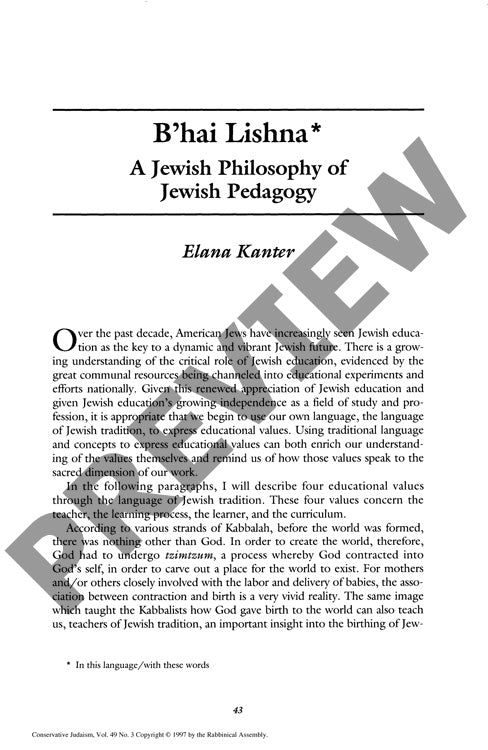Bhai Lishna a Jewish Phlosophy of Jewish
Couldn't load pickup availability
Jewish theological concepts offer powerful frameworks for modern educational practice, yet their pedagogical applications remain largely unexplored. Drawing upon Kabbalistic concepts, Talmudic teachings, and Mishnaic sources, a distinct Jewish educational philosophy emerges through four core principles: tzimtzum (divine contraction) as a model for teacher restraint and student-centered learning, na'aseh v'nishma (experiential learning through active engagement), tzelem elohim (recognition of each student as bearing the divine image), and ein domeh l'haveiro (acknowledgment of individual uniqueness among learners). Through a theoretical methodology bridging classical Jewish sources with contemporary educational philosophy, the analysis reveals how these traditional concepts illuminate modern pedagogical challenges. The findings demonstrate that effective teaching requires teachers to contract themselves to allow student agency, that authentic learning occurs through direct experience rather than passive reception, and that each student possesses unique divine potential requiring individualized approaches. By articulating educational values through traditional Jewish theological language, this framework enhances understanding of teaching as sacred work while providing culturally authentic approaches for Jewish educational practice.

More Information
-
Physical Description
-
Publication Information
Published 1997
ISBN
-
Publication Credits
Elana Kanter

